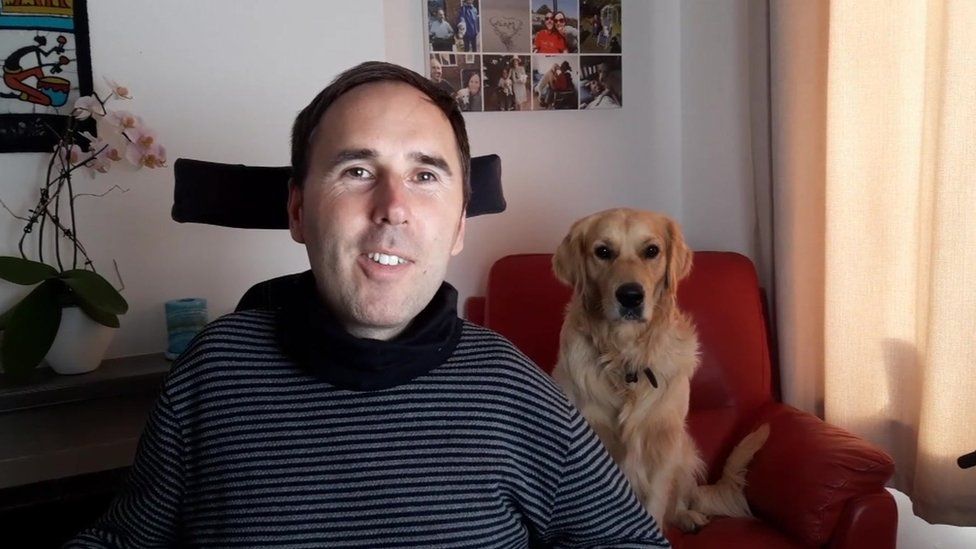Ministers warned coronavirus bill threatens services for disabled people
- Published

The rights of people with disabilities must be protected as the UK responds to the coronavirus pandemic, campaigners have urged.
Disability rights groups have warned that safeguards could be sacrificed as part of new emergency powers.
They are particularly concerned what will happen when carers either fall ill or need to go into-self-isolation.
Baroness Grey-Thompson said she was worried that disabled people "might be seen as expendable".
MPs approved sweeping new powers for the government to deal with the outbreak on Tuesday. The bill is expected to become law on Wednesday after passing through the House of Lords.
The legislation will allow councils to prioritise who and what type of needs it will meet, rather than being required to meet all eligible assessed needs as is currently the case.
The government says this will help adult social services cope with "surging demand and reduced capacity" due to anticipated widespread illness among patients and staff.
But campaigners have urged ministers to rethink the plans, saying it "cannot be right" that any disabled person is left "without the right to assessment and support".
A coalition of leading charities is also calling for a rethink of plans to allow people to be detained under the Mental Health Act on the authorisation of just one rather than two doctors.
In a letter to ministers, they said relying on the judgement of one individual on issues of such magnitude was "neither reasonable nor proportionate".
Paralympian and crossbench peer Baroness Grey-Thompson said many disabled people were very worried by the bill, with concerns it could lead to the loss of rights and crucial social care support.
"Like many others, I have huge sympathy for what the government are trying to do right now, but a bill of this magnitude will be life-changing for disabled people."
"This is a health and social care obliteration bill by a different name."
And her fellow crossbench peer, Baroness Campbell, a former commissioner of the Equality and Human Rights Commission, said disabled people "must not be invisible in the survival planning process".
'I still need a lot of care'
Martyn Sibley is self-isolating at home. Like many disabled people, Martyn has decided to do all he can to avoid unnecessary contact with others.
But he still needs help.
Martyn employs a team of assistants directly to help him, and that comes with its own concerns,
"Every day, I still need a lot of care and support with getting out of bed, getting dressed, having a bath, and daily living tasks around the house.
"If any of the care team were to fall ill with the virus, particularly my overnight support I don't know what that would mean for me."
Baroness Campbell of Surbiton has raised the issue with the Department of Health and Social Care. She says some disabled people are not attached to any agencies.
"We are on our own," she said. "We are employers, and we have to put in place our own safety mechanism. If you are on a ventilator - and there are lots of us - that takes two months of training, so what's going to happen?"
Disabilities Rights Lawyer Chris Fry said: "What is critical is what is life-saving, but for many people, there are all sorts of other needs that might be considered minor or moderate now, but might not be in the future and there's nothing in this bill that allows for any assessment of that."
The Department of Health and Social Care said that it "recognises the concern among personal assistants and those receiving their support". It said it will do "everything it can to help ensure local authorities continue to provide care."
Ministers insist that the emergency provisions in the bill will be time limited.